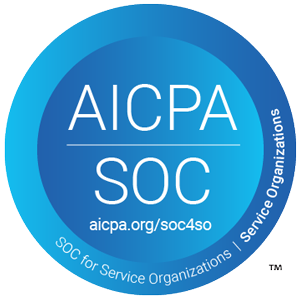
Types of Hackathons
Types of Hackathons

Hackathons are as Diverse as Their Participants
Hackathons come in many different shapes and sizes, although their essential elements are the same. The type of hackathon that’s right for your organization largely depends on your goals and budget. Here is an overview of the most common types of hackathons.
The Two Main Types of Hackathons: Internal and External
Internal Employee Hackathons
An internal hackathon is a hackathon sponsored by the company for its employees. The goal of such a hackathon is to generate fresh thinking, team building, intrapreneurship, and increase employee engagement and retention. Angelhack founder Sabeen Ali says “internal hackathons are opportunities for corporate employees to step outside of their regular role in an otherwise constrained work environment…They get to lower their typical boundaries, typical restrictions, and build something that they think isn’t part of their immediate role or immediate responsibility,” she says. “There’s a freedom to it.”
An internal hackathon can help an organization develop a new perspective on existing problems as well as uncover new ideas and opportunities. Employees typically report enjoying the freedom of thinking and creativity that’s encouraged at internal hackathons, resulting in a boost to their job satisfaction.
External Employee Hackathons
External hackathons are intended to enlist the help of outside talent and foster relationships with an external community, such as the developer or data scientist communities. This type of hackathon is frequently used to attract new employees, garner media attention, and build strategic relationships. External hackathons are typically more expensive, more logistically complex, and require more organization, however the net result has the potential to offer significant value since you’re tapping into a broader scope of talent.

Hackathon Subcategories
An offline hackathon is the traditional in-person format. The hackathon takes place in a venue where all participants interact with each other in the same physical location. In-person hackathons are becoming less common in our increasingly virtual world. The strength of an offline hackathon is in the networking potential that naturally arises from collaborating in-person. On the other hand, its weakness is the limitation of participation to individuals within a geographic area. If you’re looking to truly tap into the best and brightest hackers from around the world, you may want to consider a virtual or hybrid hackathon.
An online (or virtual) hackathon is a way to collaborate and compete with experts around the world. It can be done through various communication tools such as Asana, Slack, Zoom, Skype, etc. Internal online hackathons are great for companies that have remote employees in different cities, states, and countries, or for companies looking to find novel solutions by tapping into the global hacker community.
Virtual external hackathons remove geographical and financial (e.g. travel cost) limitations. An example of an external virtual hackathon is the Open Sea Lab 3.0, an event that brings together data and multidisciplinary scientists, software developers, social innovators, students, and businesses from around the world to harness the wealth of open-source, marine data to develop solutions to Ocean challenges. Again, without physical limitations, virtual external hackathons enable organizations to harvest the best thinking from around the world.
Hybrid hackathons are a combination of online and offline events. Participants can choose the most convenient way to join this type of hackathon. If they don’t have an opportunity to participate in the event physically, they can do so online. Hybrid hackathons cater to larger audiences, allowing organizations to leverage the benefits of both virtual and in-person events.
When most people hear the term “hackathon,” a coding hackathon is typically what comes to mind. A coding hackathon is an event where computer programmers, designers, and other tech professionals come together to collaborate on a project. This type of hackathon can be sponsored by a university or an employer, and be either in-person, virtual, or hybrid. Participants work together to build applications or websites, develop algorithms, or create data visualizations. The goal of the hackathon is to create something new, innovative, and functional in a short span of time. Such hackathons are often intended to produce a working prototype. Note that just because the goal of the hackathon is to produce a technical solution or prototype doesn’t necessarily mean non technical people can’t participate. It’s often helpful for engineers to hear the perspectives of non technical professionals, such as marketers, product managers, and business developers, among others.
DeveloperWeek sponsors the nation’s largest challenge-driven coding hackathon annually, with challenges and awards from their many sponsors, including Oracle, Zoom, ROMAD, Foxit, Pi Network, and more. This is an example of a coding hackathon that uses the hybrid model and welcomes non technical professionals although the focus is on generating technical solutions.
Coding hackathons can be a great way for coders and tech professionals to learn new skills, build their portfolio, network with other professionals, and even find jobs or funding for their start up. It can also be a great way for companies to identify talented engineers and recruit them into their organizations.
Organizations across many industries run different types of hackathons. Industry hackathons combine technical and non technical talent in solving industry specific challenges. These hackathons can be structured in various ways, either in-person, virtually, or in a hybrid format.
For example, the NASA International Space Apps Challenge is an event held annually at the beginning of October in over 320 locations for 48 hours. The goal of the hackathon is to address real-world problems about space and earth using NASA’s free and open data.
Online travel platform, Agoda, sponsors Codegoda annually to find solutions to various algorithmic problems to enhance their website’s functionality. The event attracts thousands of coders from around the world competing for cash prizes.
Another example is Hack4Ally, sponsored by Estée Lauder, which is focused on ideating and developing accessible and inclusive solutions specifically for the challenges that people with disabilities face in their daily beauty regimen.
Each of these hackathons can generate fresh thinking and innovative solutions to the benefit of the whole industry.
Many universities sponsor hackathons in order to build relationships with the local business community, position themselves as an institution that fosters innovation, and to help their students develop skill sets and find career opportunities. For example, the University of Michigan sponsors MHacks on a semi-annual basis. The event lasts for 36 hours and is open to students globally. The hackathon has sub-tracks in Social Justice, Professional, Educational, Social, and Medical that competitors can choose from.
Drexel University has sponsored Philly Codefest since 2013, often in partnership with various local Philadelphia based businesses such as Comcast. This hybrid hackathon has attracted thousands of software and hardware hackers, made up of professionals, educators, and students alike. The theme and goal changes each year, ranging from developing novel solutions to support the Philadelphia region’s sustainability and climate goals, to generating real-world, scalable, software and hardware solutions to improve and expand artificial intelligence’s (AI) positive societal impacts.
Social impact hackathons are aimed at addressing societal challenges, such as poverty, climate change, or accessibility. Coding for Community is an organization that believes in the power of technological solutions to remediate society’s most pressing problems. Through their engagement with students at the high school and college level, including underprivileged and refugee populations, they have sought to build apps that address issues at the local, state, and nationwide level.
Another example of a social impact hackathon is Hack4Climate (H4C), which brings together developers and climate experts at an annual hackathon that’s a part of the UN sponsored Conference of the Parties (COP) climate summit. H4C is designed to accelerate tangible climate solutions at scale by utilizing key disruptive technologies: Internet of Things (IoT), Distributed Ledgers (DLT, ‘Blockchain’), and Artificial Intelligence (AI). The best teams and challenges are selected and supported to become tangible use cases as part of an 18 month accelerator program.

